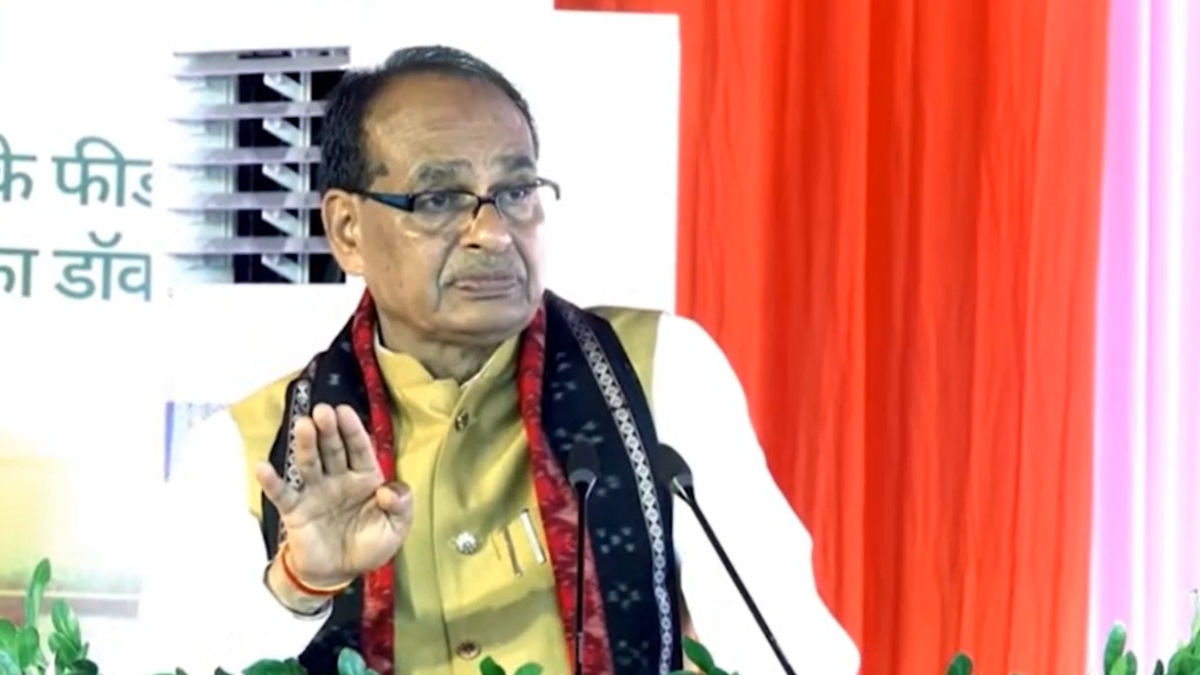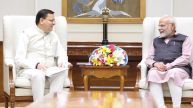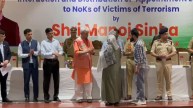While addressing the public, Union Minister Shivraj Singh Chouhan described agriculture as the “backbone” of India’s economic structure and hailed farmers as its “soul.” Emphasizing the central role of agriculture in national development, he said, “Agriculture is the backbone of the Indian economy, and farmers are its soul.”
Commending the tireless contribution of farmers, Chouhan remarked, “When a farmer sows a seed, he doesn’t just plant a seed—he sows life.” He proudly highlighted a record-breaking achievement in food grain production this year, noting that India has produced 353.959 million metric tonnes, marking an increase of 21.661 million metric tonnes from the previous year. However, he stressed that this growth must continue, urging, “We must not stop; we must keep producing.”
Underlining India’s global responsibility, the Minister said, “India will not just feed its own people—we must become the food basket of the world.”
Focusing on seed quality as the foundation of agricultural productivity, Chouhan lauded the role of scientists, especially those at the Indian Council of Agricultural Research (ICAR). “I congratulate the scientists of ICAR who are continuously experimenting in the lab to develop new seeds,” he said.
In a significant announcement for the farming community, Chouhan informed that the Union Cabinet has approved an increase in the Minimum Support Price (MSP) for 14 Kharif crops. “Under the leadership of Prime Minister Narendra Modi, the government has taken a major step to support farmers by raising MSPs,” he stated.
Chouhan also launched the ‘Viksit Krishi Sankalp Abhiyan’, a new initiative aimed at bridging the gap between scientists and farmers. He explained, “The aim of this campaign is to bring scientists out of the labs and into the fields—sit with farmers in their villages, understand their challenges, and help them adopt innovative practices.”
Calling for stronger farmer-scientist engagement, Chouhan appealed to farmers to actively participate: “I urge all farmers across the country to make time to meet the scientists visiting their villages—learn new techniques and increase your yield.” He also encouraged scientists to view this campaign as a service opportunity: “You are being given the privilege of helping farmers directly—there can be no greater act of service.”
Concluding the event, Chouhan invoked divine blessings for the success of the mission. “With folded hands, I offer my prayers at the feet of Lord Jagannath, seeking His grace and blessings for this noble campaign.”
The ‘Viksit Krishi Sankalp Abhiyan’ is being seen as a transformative step in the central government’s efforts to make Indian agriculture more self-reliant and globally competitive through enhanced collaboration between researchers and cultivators.
In a historic move to strengthen India’s agricultural future, the Ministry of Agriculture has launched the ‘Viksit Krishi Sankalp Abhiyan’, a nationwide campaign inspired by Prime Minister Narendra Modi’s vision of a Viksit Bharat (Developed India). The campaign, running from May 29 to June 12, 2025, aims to bring science and innovation directly to the farmers’ fields ahead of the Kharif season.
Nationwide Outreach: Over 1 Crore Farmers To Be Engaged
Under this massive initiative, 2,170 special agricultural teams—comprising agricultural scientists, extension officers, agri-experts, and progressive farmers—will reach over 65,000 villages across all 723 districts of India. These teams are expected to engage in direct interaction with 1 to 1.5 crore farmers over the 15-day period, facilitating knowledge-sharing and empowering grassroots-level innovation.
Campaign Objectives
The campaign is designed to make agricultural knowledge accessible, actionable, and transformative. The key objectives include:
Educating farmers about Kharif-specific crops and techniques, with a focus on boosting productivity and sustainability.
Raising awareness about modern agricultural technologies, government schemes, and policy initiatives aimed at supporting farmers.
Promoting the use of Soil Health Cards (SHCs) by training farmers to understand and apply the fertilizer recommendations effectively.
Collecting farmer feedback on crop selection, balanced fertilization, and local innovations to help scientists realign their research priorities based on grassroots realities. Enhancing the “Lab to Land” approach by bridging the gap between research institutions and rural India.
Learning from Farmers, Not Just Teaching Them
Union Minister Shivraj Singh Chouhan mentioned that Scientists to Visit Farmers’ Homes Before Kharif Season to Boost Crop Yield. In a notable shift, the campaign encourages mutual learning between scientists and farmers. Researchers and scientists from the Indian Council of Agricultural Research (ICAR) and Krishi Vigyan Kendras (KVKs) will visit farms, interact directly with cultivators, and learn from their innovative practices. This collaborative model seeks to promote both scientific insight and local wisdom.
A First-Of-Its-Kind Initiative In India’s Agricultural History
This is the first time in Indian history that such a large-scale coordinated interaction is taking place between agricultural scientists and farmers. The government hopes this campaign will play a vital role in transforming Indian agriculture into a more resilient, sustainable, and globally competitive sector.
As the nation prepares for the upcoming agricultural season, the ‘Viksit Krishi Sankalp Abhiyan’ is being seen as a milestone initiative that will accelerate India’s journey toward self-reliant and developed agriculture—by putting the power of science directly into the hands of those who feed the nation.
Also Read: PM Modi Tears Into Mamta Banerjee; Says ‘People of Bengal Have Lost Faith in TMC Government’












